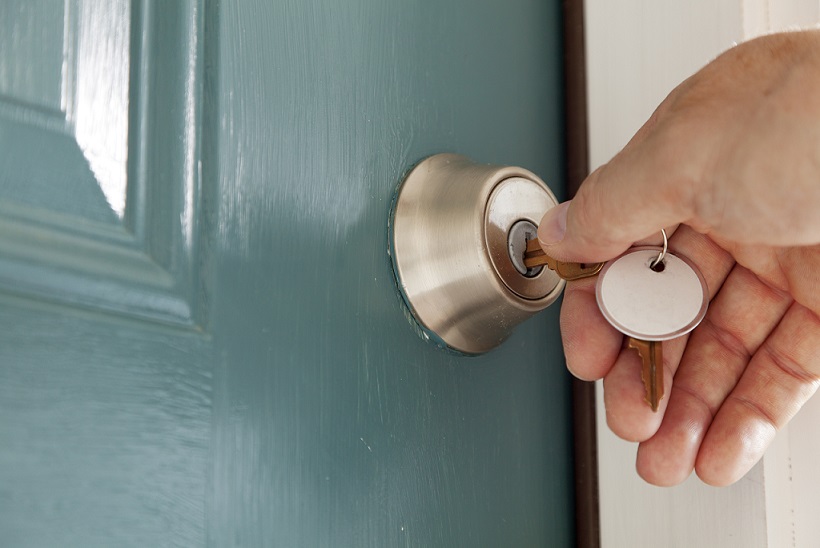Subscribe
If you are thinking about changing your house locks after separating from your partner, there are a few things you should know to stay on the right side of the law
When a relationship breaks down (either a marriage or a de facto relationship), it is common for one party to leave the former matrimonial home. When this occurs, the party continuing to live in the home may wish to change the locks after separation, to prevent their former partner from returning to or having access to the home.
Locks can be changed in situations where it is clear who is the legal owner of the property or where there are court orders specifying one party’s right to sole use and occupation of property.
Every situation will be different and individual circumstances need to be considered.
Can I change the locks after separation if the property is registered in joint names?
If you and your former partner own the property as joint proprietors (which means owning the property in joint names), both of you have the right to change the locks after separation.
However, even though you may be entitled to change the locks, your former partner still has the right to enter the property, as both of you continue to have legal ownership of the property.
It is important to remember that if you do not have court orders giving you exclusive rights to live in the property, your former partner could try to regain entry without your consent. For example, there could be a court order allowing one party to have sole occupation of the property to the exclusion of the other party, or that the property is to be transferred to one party.
Who has rights over the property?
In the absence of any court order stating otherwise (such as the right to sole occupancy), if the property is registered in one party’s name, that person will have rights over the property. This includes the right to remain living in the property, or changing the locks. The other party (whose name is not on the title) may not have a right to regain entry without the owner’s consent. However, entering the home after you have left it might have other legal consequences including the risk that your former partner might apply for an intervention order being sought against you.
Although the owner may be legally entitled to do so, it is a good idea to notify your former partner that you intend to live in the property or change the locks, especially if you have children.
What if neither party owns the property?
If neither you nor your former partner own the property that you have been living in, you are not allowed to change the locks because neither of you are the legal owners of the property. This can happen if you are living in a rental property. If you wish to change the locks on a rental, you will be required to get the landlord’s consent prior to doing so.
Can I change the locks if I’ve experienced family violence?
If you are living in the former home and you fear for your safety, you may also be concerned that your former partner will try to regain entry to the property. You will need legal advice immediately.
You can also contact the police to find out what else to do. For example, an intervention order may be appropriate. Intervention orders can prevent one party from attending or coming within a certain distance of the property.
Can Family Courts make orders allowing me to change the locks after separation?
If one party changes the locks, this does not mean that the other party gives up any claims over the property. It can still be subject to a property settlement.
A Family Court has powers to determine how properties are dealt with. For example, the Court may make orders for one party to retain ownership of the property or for the property to be sold, regardless of who is living in the property.
Our thoughts on changing the locks after separation
Changing the locks of a property is reasonable in many situations, yet it is also an action that is fraught with challenges, especially when emotions are running high, or one party is caught off-guard. To reduce any legal issues and to make the transition as smoothly as possible, contact us for legal advice.
This article was written by family lawyer, Carla Carucci.
DISCLAIMER: We accept no responsibility for any action taken after reading this article. It is intended as a guide only and is not a substitute for the expert legal advice you can receive from marshalls+dent+wilmoth and other relevant experts.
Subscribe




